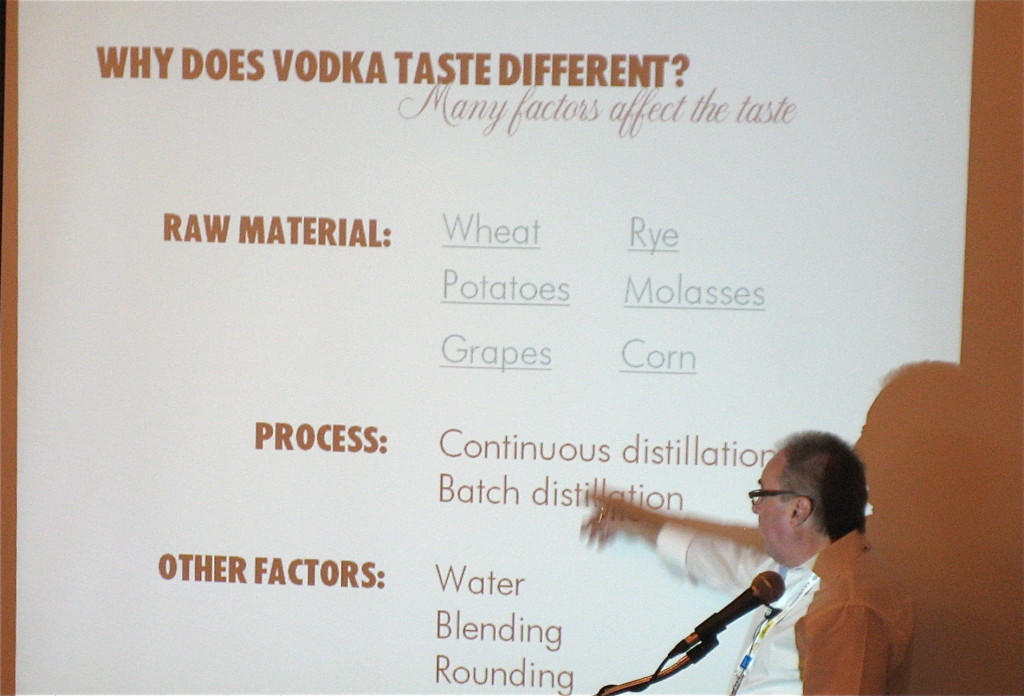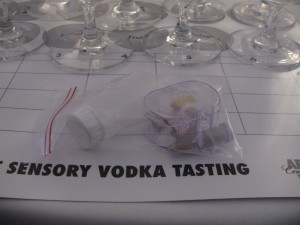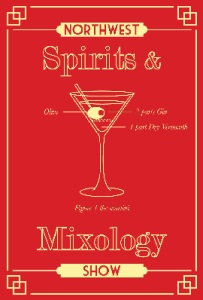Sensory Analysis With an Absolut Scientist
July 29, 2010 by Ms. Boozenik
Filed under Spirits Events


One of the most fascinating seminars we attended at Tales of the Cocktail was Per Harmansson’s Sensory Analysis seminar.
Harmansson is a leading sensory analyst from Sweden and Director of Sensory Analysis for Absolut vodka. He led attendees through an examination of sensory experience as well as an in-depth vodka tasting. Below are some interesting facts that we learned during the hands-on event.
Interesting Facts About Your Nose:
1. When sniffing a spirit, up to 20 percent of what you smell is air hitting the olfactory nerves. Instead, just waft the spirit under the nose and that goes down to 2 percent.
2. The sense of smell registers volatile substances that are soluble in oil and/or water.
3. Don’t nose a spirit for too long or it will exhaust your olfactory nerves, something only time can remedy.
4. People in their fifties can require up to four times as much aromatic stimuli as people in their twenties do. This may help to explain why palates evolve over the years to appreciate more aromatic spirits like Scotch, which may overwhelm a younger palate.
5. As our complimentary nose plugs were able to demonstrate, without the sense of smell there is no sense of taste.
How to taste Vodka
Consider, what is vodka?
• Distilled from wheat, rye, corn, potatoes, maple sap, whey or other agriculture products.
• Continuous or pot still distillation.
• At least 37.5% alcohol by volume
How can vodka taste?
• Grainy (if made from wheat or other grain products)
• Bready (such as a dark rye bread flavor)
• Fruity
• Like a solvent (the cheap stuff)
Which raw materials can affect taste?
• Wheat
• Rye
• Potatoes
• Molasses
• Grapes
• Corn
• Maple syrup
• Whey
What distillation process was used?
• Continuous distillation
• Batch distillation
Other factors to consider.
• Water source
• Blending
• Rounding (meaning was sugar added after distillation for a smoother vodka?)
Key sensory points to keep in mind when tasting a vodka.
• Aroma
• Taste (sweet, sour, bitter, salty, umami)
• Mouth feel (smooth, full-bodied, thin, dry, harsh, pungent, hot)
• Finish (sweet, dry, creamy, thin, thick, short, long,)






